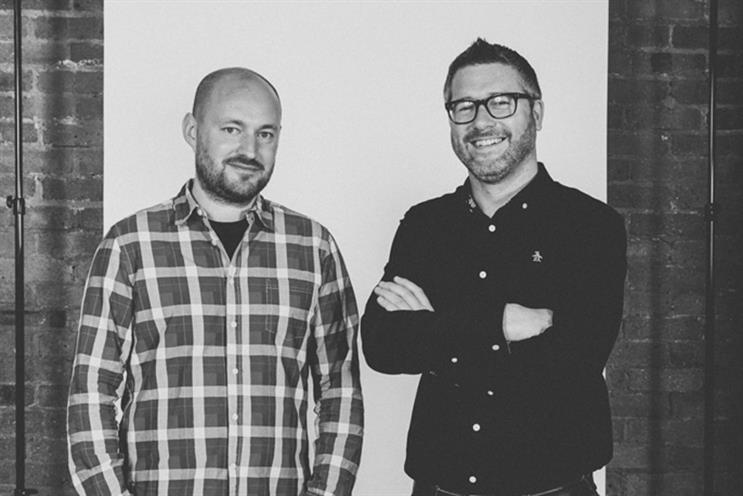Animl have a very simple proposition – help brands put good things into the world. But it requires setting things up differently.
The agency employs researchers, storytellers, designers and technologists but projects are led by directors/producers, and expertise – say, Bafta award winning screenwriters or neuropsychologists – is brought in as dictated by the solution.
So what do you get when all's said and done? Canon got , a cloud-based photo management system which plays nice with social networks and is now baked into all of Canon's digital products.
Unilever got the eyeView – a robust headmounted camera to show the world through a child's eyes, which informed . They also got co-founder Richard Neville to give a talk.
We were intrigued, so asked Animl cofounders Richard Neville and Nathan Gainford what experiences led them to this point, and what tech innovations have been changing marketing.
What three things got you to the position you’re in today?
Richard Neville (RN): Technology. I was lucky enough to get into the web in the early days, when it was like the Wild West. Experimentation was everything, and nothing was sacred. If you could imagine it, you could try and build it. And from a leadership perspective, if you could make sense of what's going on and help people work together, the possibilities were really amplified.
Also, adaptability. I wrote that word on my very first CV, acknowledging that I had zero credentials: quick to learn and adaptable, honest guv. I still think that’s essential, especially in the current market. With so much change in advertising, marketing and technology, being adaptable beats any formulaic recipe for success.
Nathan Gainford (NG): Restlessness. I’ve always had a strong desire to not be pigeon-holed. The world has a habit of wanting everything to fit into neat boxes. I always wanted to work across a wide range of disciplines, to absorb as many experiences and skills as possible. I’ve been lucky enough to do that because I’ve always been restless.
Who has had the biggest influence on your careers?
NG: The people we’ve hired over the years. Definitely. There is absolutely nothing more valuable to a business leader than seeing how new talent develops. If you only value your own skills, you’re limited. If you’re open to other people’s views, the world becomes a bigger and more exciting place. Getting the balance right between experience and new ideas is a brilliant challenge, and the best way to succeed in business.
How do you see agencies changing in the next three years?
RN: Agencies need to get better at broadening their horizons. They need to be better at following consumers, not conventions. People who don’t work in marketing don’t generally love marketing, it’s as simple as that.
NG: If we get marketing right, it should be a good thing. It’s about genuine engagement and genuine enjoyment.
Agencies of the future will have to become more honest about what people actually choose to spend time with. Their work is in the same competitive set as the world’s best movies, tech products, stories and memes. It’s not just a different way of talking about work, it’s about a different way of doing it.
What’s your online distraction of choice?
RN: I watch a lot of full-length TV on YouTube. I love the diversity and depth of content you can find on there. I recently watched a great , another one on , and if you look hard enough, you might even find Adam Curtis’ classic lost documentary about the birth of marketing, The Century Of The Self.
NG: I think I saw a video of a kitten being pushed off a table on there once.
What is the best tech innovation in the past year that's had an impact on the world of marketing?
NG: There used to be a good answer to that question, and it would change every month or so. Now I’m not sure that marketing is so quick to jump on tech innovations, or at least it does so less successfully. That’s probably because consumers are less willing to jump on tech innovations these days.
It’s interesting to see how the critics are out to destroy the Watch at the moment. They seem to be genuinely disappointed that an expensive wristwatch hasn’t taken the world by storm.
Fancy appearing in our Disruptor series? Drop us a line and tell us why.


